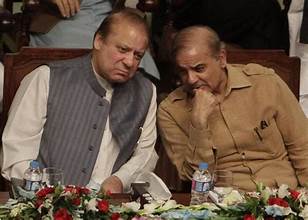Nawaz Sharif, the influential political figure in Pakistan, has made a significant move in the political landscape of the country by nominating his brother, Shehbaz Sharif, as the new Prime Minister of Pakistan.
Political Dynamics in Pakistan
Pakistan, a nation with a complex political environment, has been witnessing various shifts and developments in its political arena. The nomination of Shehbaz Sharif by Nawaz Sharif comes amidst a time of political turmoil and uncertainty, as the country grapples with both internal and external challenges.
Nawaz Sharif’s Strategic Move
The decision of Nawaz Sharif to nominate his brother, Shehbaz Sharif, as the new Prime Minister of Pakistan is not merely a familial choice but also a strategic maneuver aimed at consolidating power within their political party. By appointing Shehbaz Sharif to the position of Prime Minister, Nawaz Sharif aims to ensure the continuation of their political legacy and influence in the country.
Shehbaz Sharif: A Political Figure with Experience
Shehbaz Sharif, with his extensive experience in Pakistani politics, is well-equipped to take on the responsibilities of the Prime Minister’s office. Having previously served as the Chief Minister of Punjab, Shehbaz Sharif brings a wealth of administrative and leadership skills to the table, making him a suitable candidate for the position.
The Future of Pakistan Under Shehbaz Sharif’s Leadership
With Shehbaz Sharif poised to assume the role of Prime Minister, many are speculating about the potential trajectory of Pakistan’s political landscape. His leadership style and policies are expected to shape the future direction of the country, influencing key areas such as governance, economy, and foreign relations.
Challenges Ahead
However, Shehbaz Sharif’s tenure as Prime Minister is not without its challenges. Pakistan faces a multitude of issues, including economic instability, security concerns, and regional tensions. Addressing these challenges will require strong leadership, effective governance, and strategic decision-making on the part of the new government.
Disclaimer : इस न्यूज़ पोर्टल को बेहतर बनाने में सहायता करें और किसी खबर या अंश मे कोई गलती हो या सूचना / तथ्य में कोई कमी हो अथवा कोई कॉपीराइट आपत्ति हो तो वह [email protected] पर सूचित करें। साथ ही साथ पूरी जानकारी तथ्य के साथ दें। जिससे आलेख को सही किया जा सके या हटाया जा सके ।














